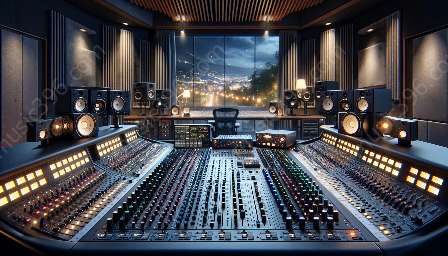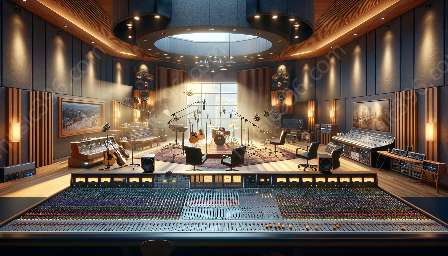Digital signal processing (DSP) plays a crucial role in audio software development, affecting sound engineering and audio software applications in significant ways. DSP involves manipulating and analyzing signals to improve audio quality, create effects, and optimize sound processing. This process impacts various aspects of audio software, such as real-time processing, filtering, and compression, leading to innovations in sound engineering and advanced audio software applications.
Understanding Digital Signal Processing
Digital signal processing refers to the manipulation of digital signals using algorithms to modify or enhance various aspects of the signal. In the context of audio software development, DSP includes techniques for processing audio signals to improve their quality and achieve desired effects. This can involve tasks like equalization, noise reduction, reverberation, and modulation, among others.
Real-Time Processing and Audio Software Applications
One of the key impacts of DSP on audio software development is its ability to enable real-time processing. Real-time processing allows audio signals to be processed instantly as they are received, leading to a seamless and responsive user experience. This capability is essential in various audio software applications, including digital audio workstations (DAWs), music production software, and live sound engineering tools.
DSP algorithms are implemented in audio software to enable real-time effects processing, mixing, and monitoring, empowering sound engineers and musicians to make instantaneous adjustments to the audio output. Moreover, real-time DSP capabilities are crucial for live performances, where audio software must deliver low-latency processing to ensure minimal delay between input and output signals.
Filtering and Audio Quality Enhancement
DSP significantly impacts audio software development through its extensive use of filtering techniques. Digital filters are employed to modify the frequency response and characteristics of audio signals, allowing for tasks such as equalization, dynamic range compression, and noise reduction. By implementing advanced filtering algorithms, audio software can enhance the overall quality of audio recordings and live sound reinforcement.
Furthermore, DSP-based filtering is instrumental in developing audio software applications that provide users with versatile tools for audio manipulation. From graphic equalizers to dynamic processing modules, filtering capabilities derived from DSP techniques enable sound engineers and producers to sculpt audio signals with precision, resulting in professional-grade audio productions.
Compression and Efficient Data Processing
DSP has a transformative impact on audio software development when it comes to data compression and efficient processing. Audio compression algorithms, such as perceptual audio coding formats like MP3 and AAC, are built on DSP principles to reduce the size of audio files without significantly compromising audio quality.
Audio software developers leverage DSP algorithms to implement various compression techniques, enabling efficient storage and transmission of audio data. This is crucial for audio software applications involved in streaming, online music distribution, and file-based audio processing. The use of DSP in compression also influences sound engineering practices by providing tools for managing large volumes of audio data without sacrificing fidelity.
Advanced Effects and Sound Design
Another area where digital signal processing has a profound impact on audio software development is in the creation of advanced effects and sound design capabilities. DSP techniques empower audio software applications to offer a wide range of effects, including time-based effects like delay and reverb, modulation effects like chorus and flanger, and spatial effects such as surround sound processing.
Moreover, DSP-driven sound design tools enable users to synthesize and manipulate audio signals creatively, facilitating the creation of unique sounds and textures. This aspect of DSP significantly influences sound engineering practices, as it allows engineers and producers to experiment with innovative sound design techniques, ultimately contributing to the evolution of audio production across various genres and media.
Optimized Resource Utilization
One of the notable impacts of digital signal processing on audio software development is its role in optimized resource utilization. DSP algorithms are designed to efficiently utilize computational resources, allowing audio software applications to achieve high-performance audio processing with minimal hardware requirements.
By implementing DSP techniques, audio software developers can create applications that deliver sophisticated audio processing capabilities on a wide range of devices, from professional studio setups to consumer-grade devices. This optimization is crucial for sound engineering professionals and audio software users, as it ensures that audio processing tasks can be carried out effectively across different computing platforms.
Conclusion
In conclusion, digital signal processing has a profound impact on audio software development, influencing sound engineering practices and driving innovations in audio software applications. From real-time processing and advanced filtering to compression and sound design, DSP techniques play a pivotal role in shaping the capabilities of audio software. As the demand for high-quality audio experiences continues to grow, digital signal processing will remain a driving force behind the evolution of audio software development and its applications in sound engineering.


























